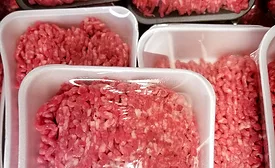Home » Keywords: » fight for food safety
Items Tagged with 'fight for food safety'
ARTICLES
Food Safety Report | Fight for Food Safety
Expect substantial, rapid food-safety advancement to continue
Speeding along
March 9, 2018
Never miss the latest news and trends driving the food safety industry
Newsletters | Website | eMagazine
JOIN TODAY!Copyright ©2026. All Rights Reserved BNP Media.
Design, CMS, Hosting & Web Development :: ePublishing


